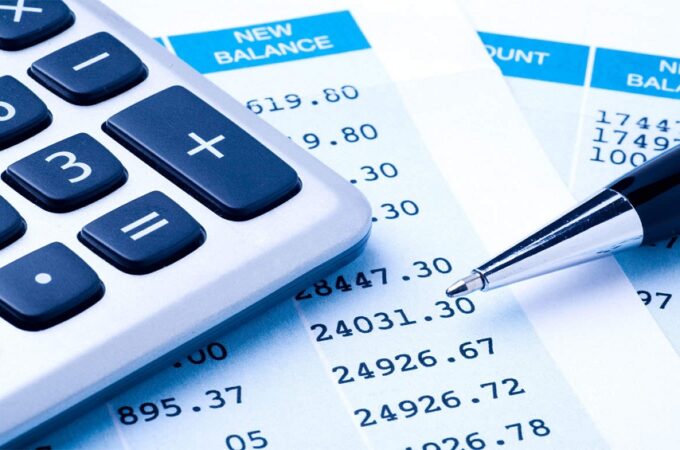
What is business accounting?
Business accounting can be scary, yet it is very useful for all businesses. Whether you are a small business, a sole proprietorship or a micro business, you are concerned!
Let’s start with a simple definition of accounting: it is above all a method that allows the continuous supply and maintenance of information on the financial health of the company.
Accounting involves listing:
all information relating to the activity of the company (its resources, expenses and profits); and
all the elements of the company’s assets (buildings, goodwill, financial instruments, etc.).
For this, all information is entered, classified and integrated into accounting documents . The balance sheet, the account ofprofit and the accounting appendices are accounting documents that a company must establish every year. Conversely, accounting journals make it possible to list the daily operations of a company.
How to choose between internal and external accounting?
To keep your accounts, it is not necessarily mandatory to use a chartered accountant, you can choose to manage your accounts yourself online using management software such as Comptastart . Learn more about using accounting software .
Keeping the accounts yourself allows you to freely choose your accounting method , and to have direct access to the strategic financial information it contains. However, this solution can take up valuable time.
By delegating to a chartered accountant , you will be able to focus on the development of your company and present perfect accounting! Although hiring an accountant is often significantly more expensive, his tax and accounting advice will give you the expertise you may need to increase the credibility of your business.
The mission of the chartered accountant must be distinguished from that of the auditor, whose intervention is sometimes compulsory. Indeed, while the accountant draws up the accounts, the auditor certifies them!
What are the accounting obligations to which you are held?
All commercial companies are subject to accounting obligations . To complete them, it is necessary to keep regular accounts that are faithful to reality .
Two points to remember:
- You must record all movements (purchases, sales in particular) of the company’s assets and keep your books for at least 10 years . The company director is required to ensure that the accounts of his company are properly kept, which must be regular, sincere and exact . Be vigilant, poor accounting can be a management error , which could engage your liability.
- Each year, you must file your annual accounts at the end of the year at the clerk of the commercial court.This event is very important in the life of a company and constitutes an inescapable legal obligation. In order not to forget any document and not to let any delay pass, we have drawn up a checklist of the formalities for “depositing accounts” .
How to establish its annual accounts?
Establishing its annual accounts is a legal obligation for any company that has economic activities, even if it has temporarily ceased its activity. It is imperative to hold an ordinary general meeting with the partners.
The annual accounts correspond to three documents : the balance sheet, the income statement and the appendix.
The balance sheet presents the state of the company’s assets. It is divided between:
The asset , which is what your company owns . It includes the company’s fixed assets (land, buildings, goodwill, etc.), stocks of goods and raw materials, trade receivables, tax and social security and cash (cash values, social securities, etc.)
The passive , that is to say what your company is liable . It consists of the equity of the company (share capital, reserves, profit for the year, etc.), financial debt (bank loans and current accounts) and tax debts, social and suppliers.
To find out more, take inspiration from our balance sheet model .
The income statement is used to determine whether the activity of your company is in surplus or in deficit. Unlike the balance sheet and may contain transactions relating to several financial years. He mentions three elements:
The products, that is to say these are the receipts realized thanks to the exploitation of the activity . They include a company’s turnover (sales), operating subsidies received, dividends, etc.
The charges, that is to say the expenses necessary for the smooth running of the business . They include purchases of goods, rents, taxes and duties, wages and salaries, etc.
The result, that is to say the profit made by the company . It corresponds to the difference between income and expenses. This result is called “balance” , it will be positive (profit) or negative (loss).
The accounting annex which contains the information necessary to understand the balance sheet and the income statement. In particular, it specifies the rules and methodsused by the company, company arguments and explanations of accrued liabilities and receivables.
Once the accounts have been established, you must proceed with the approval of the annual accounts. The accounts are then made public and become accessible to everyone, unless you have filed a confidentiality statement for the annual accounts .
Good to know : if you want to have all the information on the subject, do not hesitate to download our Guide on the approval of accounts .
What is the simplified accounting regime?
Who can benefit?
The simplified regime concerns companies subject to the simplified tax regime and companies fulfilling two of the following criteria: balance sheet less than € 4 million, turnover less than € 8 million and the average number of permanent employees during the lower financial year 50.
In addition, if you have the status of micro-entrepreneur or meet two of the following criteria – balance sheet less than € 350,000, turnover less than € 700,000 and the average number of permanent employees during the financial year less than 10 – you can benefit from ” an ultra-simplified regime thatIn particular, you do not have to place appendices at the end of your corporate accounts.
What does this change for my accounting?
As its name suggests, the accounting of a company subject to the simplified regime is… simplified! If you benefit from the simplified accounting system, your social balance sheet and income statement may be less detailed and you may have recourse to simplified valuation methods for your stocks.
On the other hand, it does not exempt the company from having its social accounts approved. As for all companies, companies benefiting from the simplified regime must summon the partners to the annual general meeting so that they approve the annual corporate accounts.
Accounting keeps track of all your company’s financial transactions and activities: it is therefore essential to the proper management of your accounts, and allows you to meet your legal accounting obligations . In this regard, be aware that when your company is subject to an audit, the administration may ask you to provide it with a somewhat special document: the FEC (accounting records file).
For more information, do not hesitate to consult our fact sheet on tax debts in accounting .




